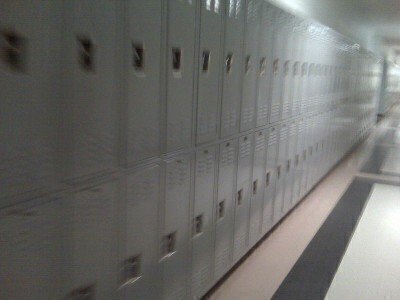Can a public school high school student be suspended for critically rapping about teachers outside of school? A case heading toward a Supreme Court private conference early nextyear could draw a new First Amendment boundary.
 The case of Bell v. Itawamba County School Board has been in the court system since 2011, when aspiring student rapper Taylor Bell appealed his punishment for rap lyrics that school officials believed were threatening to the teachers.
The case of Bell v. Itawamba County School Board has been in the court system since 2011, when aspiring student rapper Taylor Bell appealed his punishment for rap lyrics that school officials believed were threatening to the teachers.
Several high-profile rappers have jumped into the case involving the former Mississippi high school student. On Sunday, the New York Times’ Supreme Court correspondent Adam Liptak profiled the case and gave readers an advance look at a brief filed by rappers such as Killer Mike and T.I. with the Supreme Court.
Killer Mike, said Liptak, argues the First Amendment permits expression, no matter how uncomfortable some people are with language used in rap music. “I see a kid who saw wrong happening and was outraged about it,” the rapper said. “He wrote a poem about it over a beat.”
But in a broader legal sense, observers have been watching the case and its appeals process for some time, because a core issue is about where is boundary the limits student free speech – inside the school or outside of school in the world of Facebook and YouTube.
In his brief to the Supreme Court, Bell and his attorneys outline how Bell, then a high school senior in 2011 at Itawamba Agricultural High School, received a suspension and was sent to another school. Bell claimed he was told by several female students that they were being sexually harassed by two male teachers who were also sports coaches. The aspiring rapper composed and performed two songs confronting the teachers about the accusations, using rap language that was perceived as vulgar, profane and rhetorically threatening. The songs were posted on Facebook and YouTube, and composed and performed outside of school.
School officials were alerted to Bell’s activities, and they determined there were four instances of “threatening, harassing, and intimidating language against the two coaches” in his performances. The school board upheld the punishment and the legal appeals process started.
The U.S. Fifth Circuit Court of Appeals, with three judges hearing arguments, ruled 2-1 against the school district and for Bell in December 2014 on his First Amendment claim, citing the famous 1969 Tinker v. Des Moines decision.
“Contrary to the district court’s conclusion, the Supreme Court in Tinker did not hold that the substantial-disruption test applies to off-campus speech,” wrote Judge James L. Dennis. “The Tinker Court did not intend that its holding would allow a public school to regulate a student’s freedom of speech at home and off campus.”
In dissent, Judge Rhesa Hawkins Barksdale strongly disagreed with some points in the decision. “School administrators must be afforded wide latitude in proactively addressing language that reasonably could be interpreted as a threat, harassment, or intimidation against members of the school community,” Barksdale said, referencing a more current ruling that took mass shootings at schools into account.
Barksdale also argued that modern technology redefined the arguments about off-campus speech. “Bell’s intent for the speech to reach members of the community …evinced by his posting the recording publicly to Facebook and YouTube, makes Bell’s speech the functional equivalent of on-campus speech.”
The case was then heard by the full Fifth Circuit Court of Appeals, which reversed the three-judge panel’s ruling, with Barksdale writing the majority opinion, and Dennis (and several other judges) dissenting.
Barksdale said that the primary issue was “the almost 50-year-old standard for restricting student speech, based on a reasonable forecast of a substantial disruption” and the school board acted within that standard. Dennis again argued that the Tinker precedent didn’t apply to off-campus speech, and that the school district didn’t prove there was “a substantial disruption of school activities or justified a reasonable forecast of such a disruption by school officials.”
In Bell’s appeal to the Supreme Court, filed in November, his attorneys want the nine Justices to settle two questions: can public schools discipline students for off-campus speech and if so, to what extent consistent with the First Amendment?
It will take four of the nine Justices to agree to accept Bell's case at one of the Court's private conferences. One point of discussion will be if there are true splits in the lower courts on this issue. Edward C. Prado, a Third Circuit judge who dissented in the most-recent appeal, wrote that the Supreme Court needed to define online, off-site speech in these cases.
"Bell’s speech does not fit within the currently established, narrow categories of unprotected speech, and I would wait for the Supreme Court to act before exempting a new category of speech from First Amendment protection," Prado wrote in August.
Judge Gregg Costa, who had concurred with the majority, voiced similar concerns. "Broader questions raised by off-campus speech will be left for another day. That day is coming soon, however, and this court or the higher one will need to provide clear guidance for students, teachers, and school administrators that balances students’ First Amendment rights that Tinker rightly recognized with the vital need to foster a school environment conducive to learning," Costa wrote in August.







